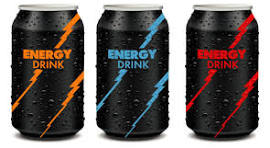United States Energy Drink Market Overview
The United States Energy Drinks Market is projected to reach approximately $33.0 billion by 2030, according to Renub Research. Energy drinks have surged in popularity, particularly among younger demographics. These beverages are associated with various positive effects, including the ability to manage blood pressure during stressful situations, enhance pain tolerance, and improve performance, concentration, and endurance. Among American teenagers and young adults, energy drinks rank as the second most consumed dietary supplement, following multivitamins.
Market Growth Projections
The United States Energy Drinks Market is expected to expand at a CAGR of 8.01% from 2024 to 2030. The increasing demand for energy drinks, perceived as effective boosters for both physical and cognitive performance, is a key driver of this growth. Products free from sugar, glucose, and high-fructose corn syrup are becoming increasingly popular among consumers. Rising health concerns, convenience preferences, and the improved quality and variety of these drinks are contributing to heightened demand. Additionally, the growth of e-commerce has enabled consumers to purchase these products more easily, benefiting the market. As a result, the market was valued at $19.24 billion in 2023.
Advertising and Promotional Strategies
Intensified advertising and promotional expenditures by major companies are significantly bolstering the market. In addition to promotional spending, endorsements and sponsorships play crucial roles in market expansion. Companies have modified their marketing strategies to effectively reach consumers through diverse channels, including supermarkets, hypermarkets, specialty stores, online retailers, television, radio, social media, and print. This multifaceted approach aims to capture consumer attention in the social media era. Notably, brands often partner with sports teams and events to enhance their visibility on platforms like Twitter, Facebook, and Instagram. For example, Red Bull sponsors U.S. football teams and incorporates its brand into their names for promotional purposes.
Non-Alcoholic Energy Drinks Leading Growth
The U.S. energy drinks market is categorized into Alcoholic and Non-Alcoholic segments. Non-alcoholic energy drinks are expected to be the fastest-growing segment, driven by the rising popularity of beverages made with herbal extracts and taurine amino acids, as well as aggressive advertising campaigns by key players. Increased investments in developing innovative flavors for non-alcoholic energy drinks are also propelling market growth.
Shift Towards Organic Energy Drinks
The market is further divided into Non-Organic, Organic, and Natural energy drinks. Organic energy drinks are projected to drive significant growth during the forecast period. A growing segment of health-conscious consumers is increasingly opting for organic options over traditional products, motivated by concerns about artificial ingredients, pesticides, and antibiotics. This shift is a significant factor in the rising popularity of organic energy drinks.
Canned Packaging Preferred
In terms of packaging, the U.S. energy drinks market is divided into Plastic, Glass, Metal, and Others. Cans are expected to maintain their dominance in the market. Consumers are increasingly sophisticated in their choices, favoring canned beverages over canned wines and other alcoholic options. Young consumers particularly prefer metal cans due to their portability and durability compared to glass. Many consumers seek functional energy drinks, a majority of which are available in cans. As a result, manufacturers are focusing on this segment with more product launches in canned formats.
Adult Consumers Driving Market Share
By end-user, the U.S. energy drinks market includes Kids, Adults, and Teenagers. The adult segment is anticipated to hold a significant share of the market over the forecast period, driven by an expanding working population and changing lifestyles. Adults seeking to maintain mental alertness and enhance physical performance are contributing to market growth. Conversely, the teenager segment is expected to exhibit a faster CAGR, fueled by celebrity and influencer promotions, as well as the introduction of organic and zero-sugar energy drinks marketed as healthier options.
Increasing Popularity Among Women
By gender, the U.S. energy drinks market comprises Women and Men. The women’s segment is anticipated to experience significant growth in the energy drinks market. Historically, young male consumers have dominated energy drink sales, but this trend is changing. In recent years, brands have seen substantial sales increases attributed to women entering the energy drink category. A new wave of fitness-focused energy brands is reshaping their product offerings and marketing strategies, moving away from traditional high-sugar formulations and marketing tactics.
Supermarkets as Primary Distribution Channels
The U.S. energy drinks market is divided into distribution channels, including Convenience Stores, Foodservice, Mass Merchandisers, Supermarkets, and others. The supermarket segment holds the largest market share, driven by increasing demand for energy and sports drinks that are free from artificial sweeteners, along with rising investments by key players. The wide range of flavors and consumer trust associated with supermarkets are also key drivers of growth in the U.S. energy drinks market.
Key Players in the Market
Major companies contributing to the U.S. energy drink market include Red Bull, Monster Beverage Corporation, PepsiCo, National Beverage Corp, Suntory Holdings Limited, The Coca-Cola Company, Campbell Soup Co., and Amway Corporation.
Recent developments include:
- In February 2022, PepsiCo Inc. launched a hemp-based energy drink in the United States, featuring ingredients like hemp oil, vitamin B, caffeine, lemon balm, and spearmint.
- In September 2022, Gatorade introduced Fast Twitch, their first caffeinated energy drink, developed in collaboration with NFL and sports performance experts, containing 200mg of caffeine, electrolytes, and B vitamins in each 12-ounce bottle.
Related Report :
Saudi Arabia Milk Powder Market
Type – Market breakup in 2 viewpoints:
- Alcoholic
- Non-Alcoholic
Product – Market breakup in 3 viewpoints:
- Non-Organic
- Organic
- Natural
Packaging – Market breakup in 4 viewpoints:
- Plastic
- Glass
- Metal
- Others
End-User – Market breakup in 3 viewpoints:
- Kids
- Adults
- Teenagers
Gender – Market breakup in 2 viewpoints:
- Men
- Women
Distribution Channel – Market breakup in 5 viewpoints:
- Convenience Stores
- Foodservice
- Mass Merchandisers
- Supermarkets
- Others
All the Key players have been covered from 3 Viewpoints:
- Overview
- Recent Development
- Revenue Analysis
Company Analysis:
- Red Bull
- Monster Beverage Corporation
- PepsiCo
- National Beverage Corp
- Suntory Holdings Limited
- The Coca-Cola Company
- Campbell Soup Co.
- Amway Corporation
About the Company:
Renub Research is a Market Research and Information Analysis company with more than 15 years of experience in Research, Survey, and Consulting. Our research helps companies to take business decisions: on strategy, organization, operations, technology, mergers & acquisitions, etc. Till now we have published more than 9000 syndicated reports and worked on more than 750 custom research projects. Currently, we are supplying data to EMIS, Bloomberg, Thomson Reuters, etc. We support many blue-chip companies by providing them with findings and perspectives across a wide range of markets.



